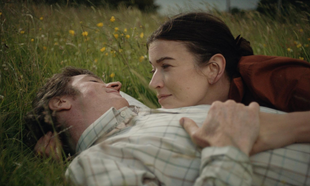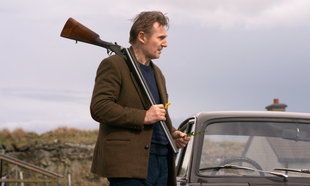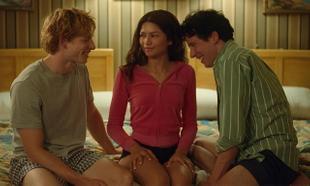Unless you're Verhoeven directing 'Starship Troopers' or Stallone in 'Rambo IV', war movies for most part strive for realism and getting under the skin of the grunt in combat, while war mockumentaries (like the criminally underrated '84 Charly Mopic' and the rather terrible De Palma effort 'Redacted') attempt to go one further in heightening the "you weren't there, man!" style. But there's no substitute for the real thing and Restrepo is certainly that.
Hetherington and Junger's documentary follows a small company making for the outpost, Restrepo, for a 15-month deployment (the outpost named after a company member Juan 'Doc' Restrepo, killed in action sometime before the directors were in country). Restrepo is an isolated outpost deep in the Korengal Valley, a station on the frontline in the most dangerous region in Afghanistan. Upon seeing the valley for the first time, one soldier remarks, ''I'm going to die here.'' Dotted with interviews with some of the soldiers after their tour, the camera follows the company on patrols and is in the thick of the action when they are regularly ambushed.
There have been a lot of films depicting the war in Afghanistan and Iraq ('Lions For Lambs', 'The Hurt Locker', 'Green Zone', 'In The Valley of Elah', etc) and although some of them get into the nitty gritty of the war, none of them come close to Restrepo. Hetherington and Junger's (the latter also penned 'The Perfect Storm') camera is largely ignored by the troops, which works in the documentary's favour in its more intimate moments: when one soldier is killed in action, his friend struggles to hold himself together as bullets continue to whiz past his head in one of the documentary's most powerful scenes. The directors take a backseat to what is happening on screen: shorn of narration (they allow the soldiers, and their worried faces, tell the story), politics (there's no pro or anti-war message, just a soldier's tale) and enforced narrative arcs, Hetherington and Junger are just there to shoot what unfolds. In keeping the Taliban off camera (this is strictly from the US soldier's point of view), the directors give the 'enemy' a ghostly presence, something dangerous and unbeatable.
Even Restrepo's quieter moments are strangely compelling - a discussion with valley elders over the payment of a cow, shot by the troops when it wandered into barbed wire, shouldn't belong in a war movie but this documentary is out not only to show us the carnage of war but also the day-to-day dealings of being in-country.
Fans of HBO series Generation Kill should love this.










































































